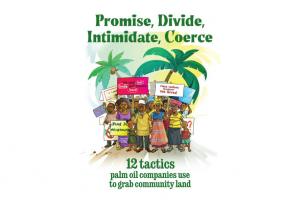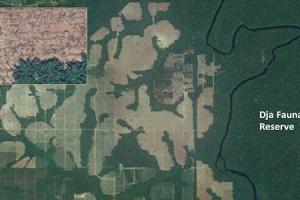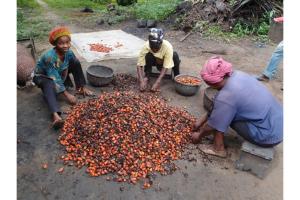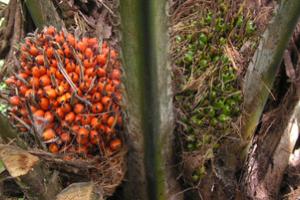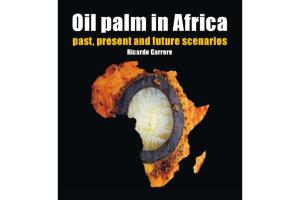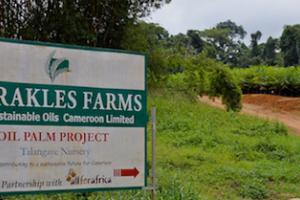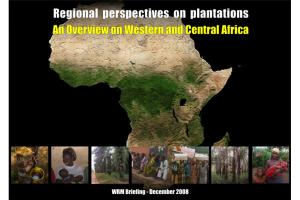Palm Oil
The oil palm tree is native to West Africa. It is an important tree for forest-dependent communities, their cultures and their economies. However, large-scale oil palm monocultures for industrial production (oil and agrofuels) have been driving deforestation and land grabbing in Southeast Asia. More recently, oil palm monocultures are also driving destruction in Africa and Latin America.
Bulletin articles
27 September 2021
The Sangha region is entirely under the control of three concessions that have colonial origins and continue to deploy guards against the forest inhabitants to prevent them using their ancestral lands.
Publications
4 April 2019
The booklet “Promise, Divide, Intimidate and Coerce: 12 tactics palm oil companies use to grab community land” aims to support communities who want to strengthen their resistance and better prepare themselves to stop corporations from establishing on their lands.
Bulletin articles
29 April 2018
How secrecy and collusion in industrial agriculture spell disaster for the Congo Basin’s rainforests.
Bulletin articles
11 September 2013
Publications
30 August 2013
Governments are opening the doors to corporations for planting vast areas of land with oil palm plantations. This trend is not only happening in West and Central African countries, but is even expanding to parts of Eastern Africa. Large scale oil palm plantations are already causing serious environmental and social impacts in some countries, resulting in loss of community rights over their territories.
Bulletin articles
30 December 2009
Publications
15 December 2008
Oil palm and rubber plantations occupy extensive areas in many countries in tropical Africa. In spite of their social and environmental impacts, until now they have received scant attention both at the national and international level.
Bulletin articles
26 February 2007
Bulletin articles
8 January 2006

